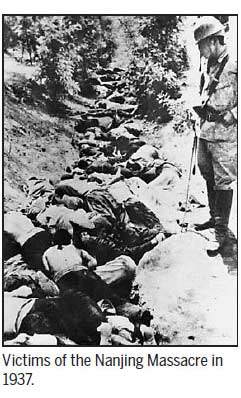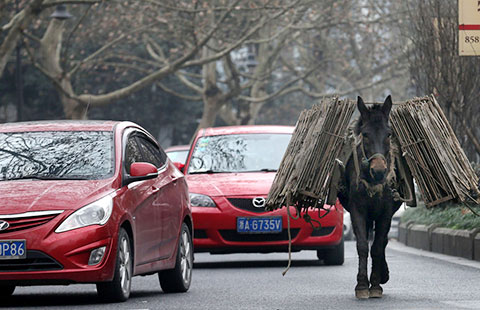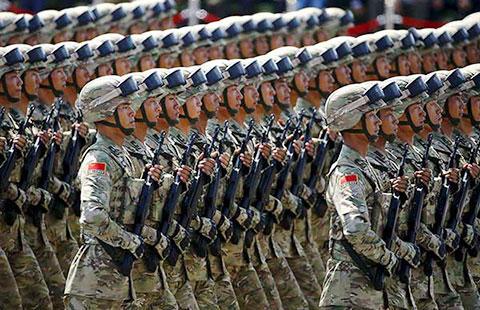Iris Chang: A light in the darkness
By Zhao Xu (China Daily) Updated: 2015-12-14 08:06
 |
According to Brett Douglas, who married Iris Chang in 1991, all the information his wife gathered during her stay in Nanjing, was "distilled and filtered" in the writing process, when she was "working 70-hour weeks".
There was still research to do. After sending out more than 100 e-mails, Iris Chang received a reply from Ursula Reinhardt, granddaughter of John Rabe, a German businessman who, together with other Westerners, established the Nanking Safety Zone in December 1937, saving hundreds of thousands of lives. For the first time, the diaries Rabe kept during the war became known to the world.
From time to time, Iris Chang would call her parents. "She talked about her nightmares and her hair loss," Ying-Ying Chang said. "I told her to stop. But she said no. She said she wanted to speak for those who could no longer do so."
The Rape of Nanking was published in December 1997. "We expected it to sell 10,000 to 20,000 copies," Douglas said. "It sold close to 500,000 in the United States alone. The book remained at the top of The New York Times' bestseller list for 10 weeks, and was translated into Chinese the following year.
Accolades and attacks
Along with the accolades came the attacks, and the author was forced to defend the veracity of her account.
"She was fierce and fearless," Ying-Ying Chang said, referring to her daughter's appearance in a 1998 television debate with Kunihiko Saito, then Japan's ambassador to the US. After the ambassador spoke of events in Nanjing, Iris Chang turned to the presenter and said, "I didn't hear an apology."
On a personal level, the book continued to exert an influence on Iris Chang's life, long after she started working on other projects, Douglas said.
"For the last seven years of her life, people were contacting her with their own horror stories about the Japanese military, and people were approaching her trying to persuade her to write more books on the subject."
Then, in late 2003, Iris Chang began research for a possible new book on the Bataan Death March through the sweltering jungle on Bataan Peninsula in the Philippines, undertaken by US and Filipino prisoners of war.
- China to sink billions into new airports
- More high-speed services to be added
- Lunar mission moves a step closer
- Southwest China city tries to help make smog-free meat
- Watchdog issues rare comment on execs' porn prosecution
- Tourism revenue in Tibet's Lhasa to double by 2020
- China overfulfills affordable housing target
- Bumper crops fill reserves
- Awards honor scientists' contributions
- Chinese police seize 470 suspects in transnational telecom fraud







